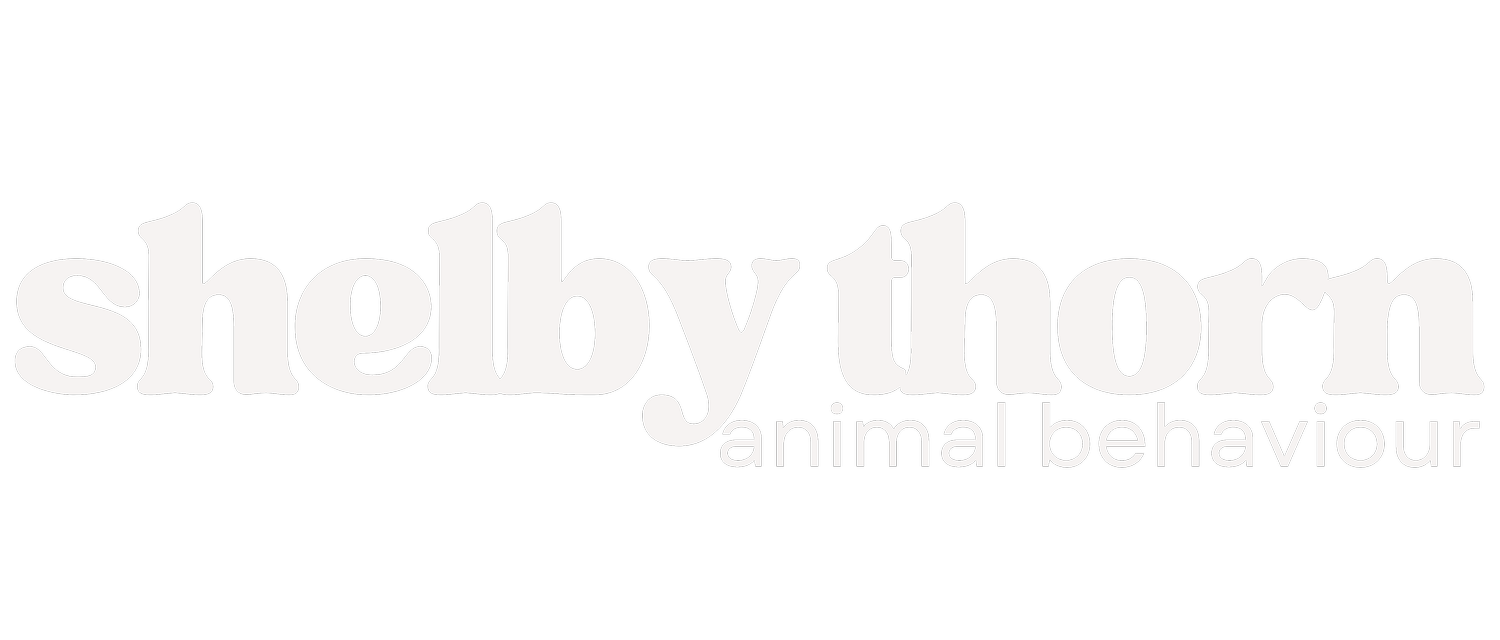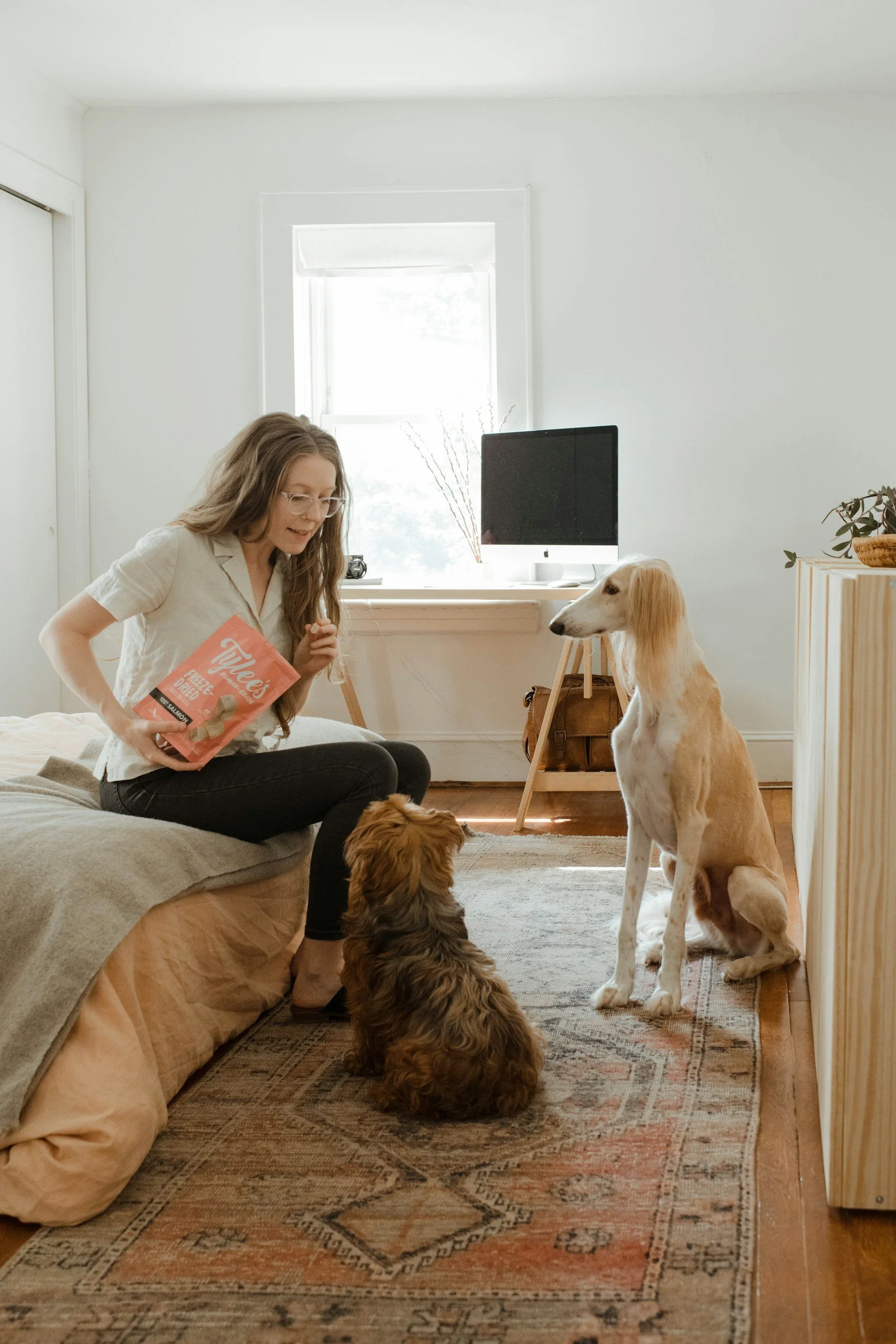The ‘Wee-Wee’ Bible
Toileting training used to be a conversation I would have with new puppy owners, or adoptive paw parents. Now days, I find that this is a common problematic behaviour inquiry for dogs at varied life stages. Whether you’re working with a brand new wee babe (no pun intended), or an older dog that’s regressed due to stress or routine changes, it’s never too late to go back to basics and create a successful toileting routine. In fact, for sensitive or anxious dogs, it’s often essential.
Let’s walk through how to build (or rebuild) a strong toileting routine, how to avoid common setbacks, and what to do if things don’t quite go to plan.
Board & Train: The Hidden Costs of Convenience
In the dog training world, “board and train” programs are often promoted as a convenient solution for busy pet parents. The pitch is enticing: send your dog away for a few weeks and they’ll come back perfectly trained. But as a science-based animal trainer, who’s first professional paid gig was in a board and train facility, I’d like to explain why these programs often don’t deliver on their promises—and can even do more harm than good.
Let’s take a closer look at why board-and-train isn’t a recommended option for effective, humane dog training.
Cortisol & Canines: Why Thresholds Matter
Let’s talk about something that doesn’t get enough airtime in dog training: thresholds—the moment when a dog goes from "I can handle this" to "I need to get out of here", and why it matters more than almost anything when working with fear, reactivity, or overstimulation.
Teach, Train, Proof! The Phases of Training
When it comes to dog training, many people lump everything into one basket. But if you want to set your dog up for success, it helps to understand the three key phases of learning: teaching, training, and proofing. Each phase has its own purpose, and knowing when to move on (or when to go back a step) can make a world of difference. Let’s break it down…
A Pawsitive Shift: Reinforcing Alternate Behaviours
When it comes to animal behaviour modification, one of the most effective strategies is reinforcing alternate behaviour. But what exactly does this mean, and why is it such a crucial part of the process?
Passive To Active: Everyday Agency For Pets
We often think of our pets as family members—loyal companions who brighten our days with their antics and unconditional love. But how often do we stop to think about how much they might appreciate the freedom to make their own decisions? Giving animals agency is about acknowledging that they are not just creatures who simply follow our ‘commands’, but sentient beings with their own preferences, needs, and desires. It’s about respecting their ability to make choices, and in doing so, deepening the bond between us and our pets.
From 'No' to 'Yes': Disruptors Beat Verbal Punishment
When it comes to dog training, the difference between telling a dog off and using a disruptor is more than just semantics. It’s a difference between fostering trust and creating stress, between building a positive relationship and eroding the connection you share with your dog. By choosing disruptors and differential reinforcement over punishment, you create a learning environment where your dog thrives and where your bond only deepens over time.
Treat or Trick? Mastering the Art of Reinforcement
When it comes to dog training, reinforcement plays a pivotal role in shaping your pet’s behaviour. One of the most fundamental concepts in reinforcement-based training is understanding the difference between continuous reinforcement and intermittent reinforcement. By mastering when and how to use each, you can significantly improve your dog’s learning process and strengthen your bond.
Keeping Cats Curious: Fun Ways to Enrich Your Cat’s Life
Our days are filled with activities that keep our minds mentally stimulated. We get up, make coffee, exercise, drive to work, engage in challenging tasks, drive home, cook dinner, and do many other interesting things that help us grow, both mentally and physically. After COVID lockdowns, now more than ever, we recognise what it’s like to be our pets — stuck in an environment with limited variety and challenges.
Different Markers and Their Role in Training
When you’re training your dog, it's essential to understand the power of markers—those verbal cues or sounds that help communicate expectation to your pet. But not all markers are created equal! In fact, there are two main types of markers you’ll encounter in pet training: the marker (often tied to classical conditioning) and the continuation marker. Though both serve to guide your pet’s learning, they each have distinct purposes and can be used to fine-tune your training.
Mat-ter of Fact: Mat Training That Will Solve Most of Your Behaviour Problems
Mat training provides numerous benefits by teaching your dog a designated spot to settle and stay, promoting calmness and reducing unwanted behaviours like jumping. It helps build impulse control and focus, which translates into better behaviour in various scenarios.
Release the Leash - Put Faith In Your Release Cue!
A release word is a cue used to let your dog know they are free to stop performing a behaviour such as ‘sit’. It’s like saying, “You’re done with this task; you can finish now!” A release cue provides clarity by marking the end of a behaviour, helping your dog understand when you’re ready for them to transition out of a stationary position.
How Do I Train My Pet To Do Anything? Marker or Clicker Training Explained.
Marker training is like a secret code between you and your pet. It’s a simple, effective way to communicate exactly when your pet is doing something right.
Positive Vibes, Positive Training: Why a Force-Free Approach Matters
I often get asked by clients how they should punish their dog, and they are often left scratching their heads when I tell them we actually don’t want to intentionally implement punishers in our dog’s worlds. I often advertise our training here at Shelby Thorn Animal Behaviour is ‘positive vibes only’ - let’s talk about what this actually means.
Using FAS in Animal Shelters.
In the world of animal care, understanding and managing fear, anxiety, and stress is essential for creating environments where animals can be their best selves. Fear Free has developed a tool known as the FAS scale sheet, which helps caregivers identify and address the emotional status of animals through observing their behaviours and providing a score. This is especially useful in shelter, veterinary or boarding-like environments.
No Shock Collars, Just Good Vibes: How To Chose An Animal Trainer
Did you know that pet training is an unregulated part of the animal welfare and care industry where anyone can claim to be an expert? Even if you find a Trainer or Behaviourist who has studied, there are many animal behaviour and training courses that are privately run, and do not have to meet any standards, and so there graduate Trainer’s can provide some very questionable advice. So how the heck do you chose a pet trainer or animal behaviourist? Let’s break it down together.




















